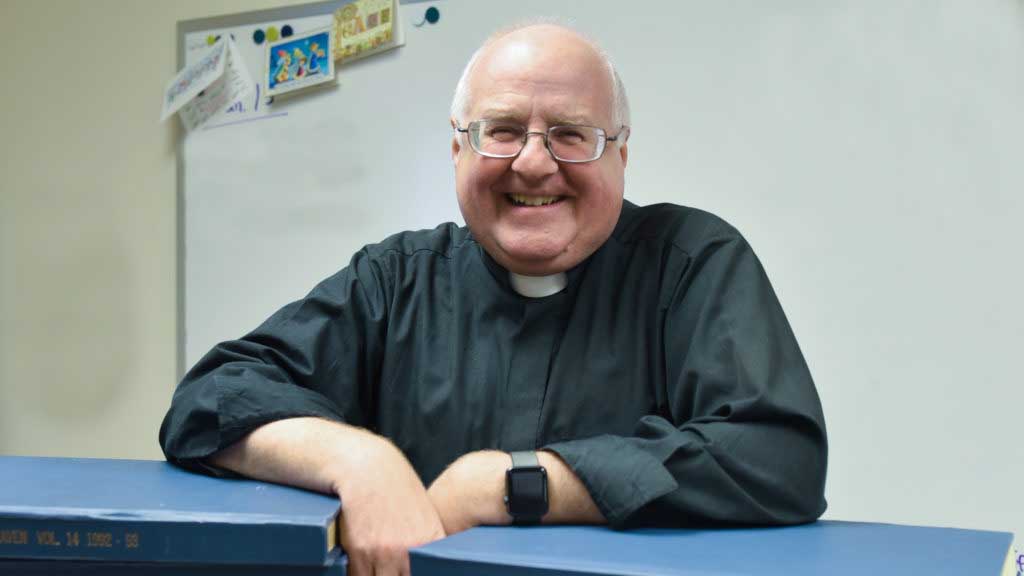
by Father Mark Goldasich
This weekend, Oct. 22-23, the church celebrates World Mission Sunday. In a sense, I’m on a mission of my own: to give non-English speakers loads of encouragement and patience as they try to learn and make sense of our often-illogical language.
I’ve not always been so understanding. As a kid, I often sniggered at the mangled English of people from Stari Kraj (the “Old Country”), those Croatian immigrants in my home par-ish, including my own maternal grandparents and their neighbors.
My grandpa called pretzels “pretzminz,” made by “Rolled Coal” (Rold Gold). As an accompaniment to that snack, he drank “Foshter” (Falstaff) beer. And I could hardly contain the laughter when a neighbor wished my mom and dad a “happy university” (anniversary). Not once did it occur to my smug little self that I could neither speak nor write fluent Croatian.
Living in Rome for five-and-a-half years while in the seminary and in grad school taught me so many lessons inside and outside the classroom. Being taught in Italian for hours a day was exhausting, especially since the priest-professors speaking that language did so with an English, Spanish, Portuguese, Croatian, French or German accent.
Even seemingly simple tasks, like buying things or getting a haircut, took on a new level of difficulty when done in a foreign language. Added to the craziness was calculating how much things cost in dollars when you were paying in Italian lire (at that time). Honestly, it gave you a headache.
That’s why I get perturbed when I hear people in the States say to immigrants, “Why don’t you just learn English?” Sadly, many times these native English speakers are the same folks whose online posts don’t know the difference between “to” and “too” or “it’s” and “its.”
Just for fun, imagine you’re just learning English and you come across these sentences, (found on the website: reallifeglobal.com):
1. The bandage was wound around the wound.
2. The farm was used to produce produce.
3. The dump was so full that it had to refuse more refuse.
4. He could lead if he could get the lead out.
5. The soldier decided to desert his dessert in the desert.
6. When shot at, the dove dove.
7. The insurance was invalid for the invalid.
8. The buck does funny things when the does are present.
9. Upon seeing the tear in the painting, I shed a tear.
10. I had to subject the subject to a series of tests.
And if the above heteronyms (did you know that’s what they’re called?) — words that are spelled the same but sound different — don’t blow your mind, ponder these conundrums:
Why do writers write but fingers don’t fing? If the plural of tooth is teeth, why isn’t the plural of booth, beeth? And what about noses that run and feet that smell? How can slim chance and fat chance be the same, but a wise man and a wise guy are opposites?
If you got a chuckle out of these silly examples, let them remind you to be gentle with those trying to learn English and acclimate to our culture. Be welcoming and helpful.
And as a sign of solidarity, why not learn a few words of their native languages? After all, World Mission Sunday is all about building bridges, and our “common language” of faith is not a bad place to start.
Have all these words stressed you out? Well, let me calm you by saying, “There, they’re, their.”

